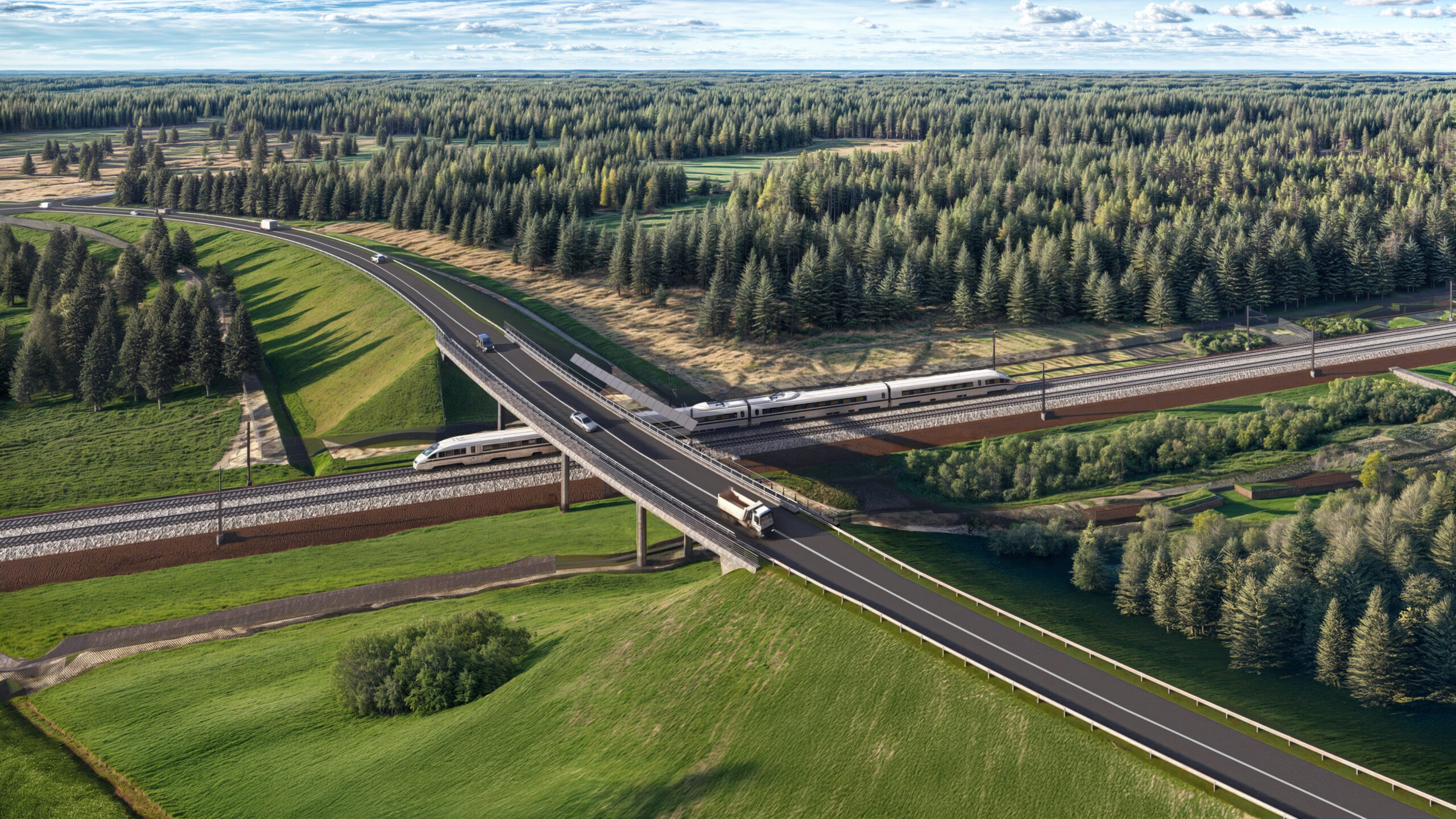
Rail Baltica is more than a high-speed rail line – it redefines how modern infrastructure is designed to work in balance with the natural environment
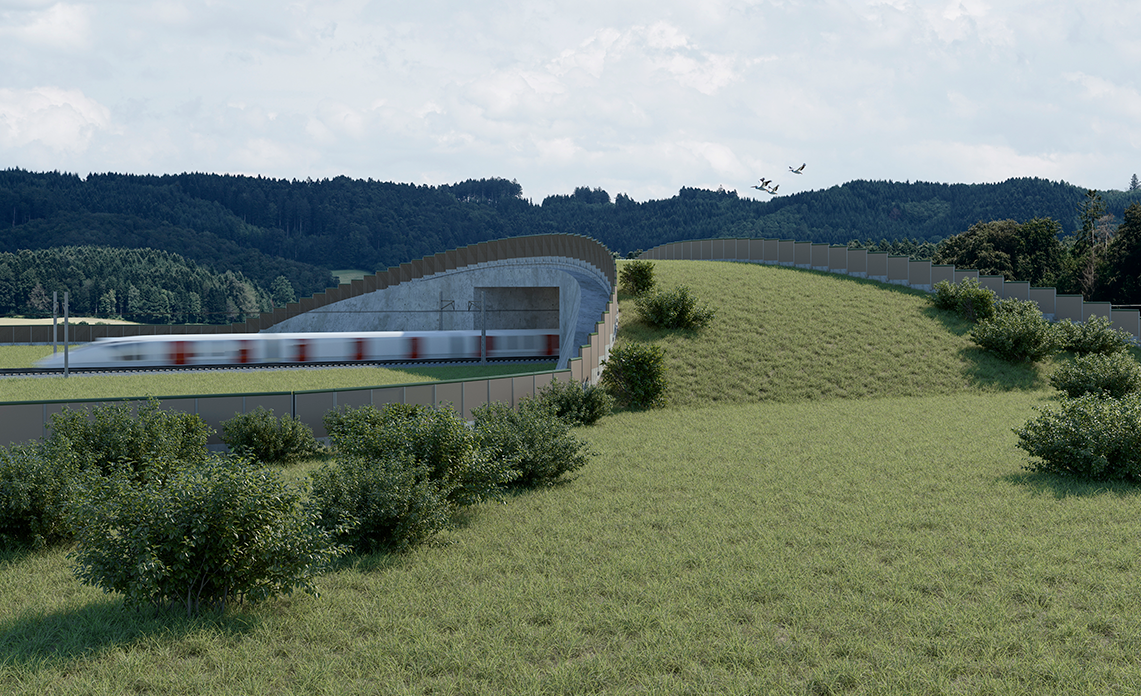
To promote sustainable mobility for a secure and green future
At Rail Baltica, we aim to build infrastructure that supports sustainable mobility while acknowledging its impact on nature and communities. Our goal is to improve connectivity and drive regional growth – without losing sight of environmental responsibility.
Our sustainability principles
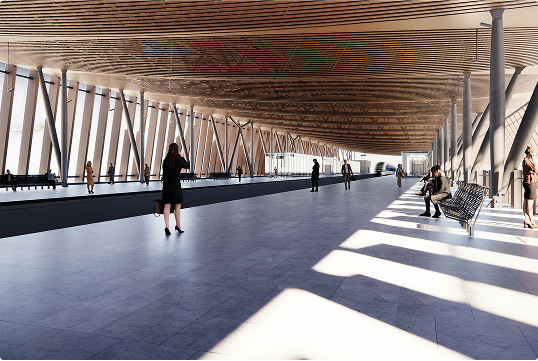
Climate change mitigation
Transport is one of the EU’s biggest contributors to greenhouse gas emissions, rising from 19.7% to 25% since 2011. With the sector expected to keep growing, Rail Baltica offers a sustainable alternative. Our goal is to align operations with a carbon-neutral future by prioritizing renewable energy and low-impact solutions.
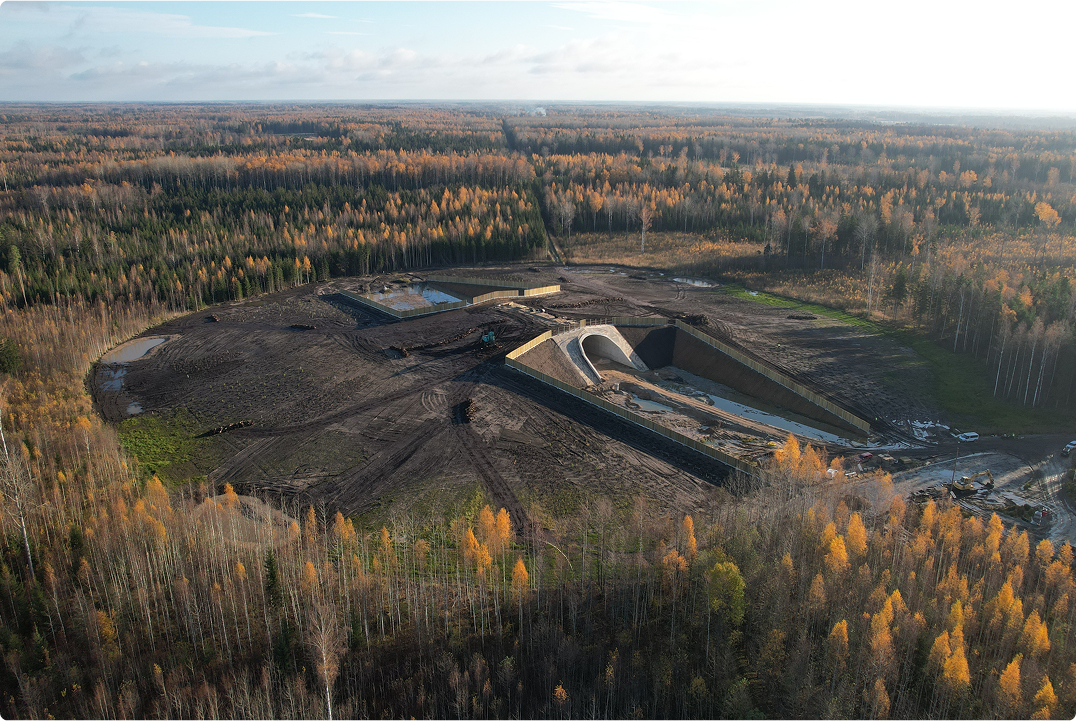
Biodiversity protection
Linear infrastructure can disrupt ecosystems through land use changes, habitat fragmentation, and traffic. At Rail Baltica, we focus on reducing and monitoring these impacts along the entire corridor. We implement measures such as wildlife crossings, reuse fertile soil with native seeds, and protect or restore habitats to help offset significant ecological disruption.
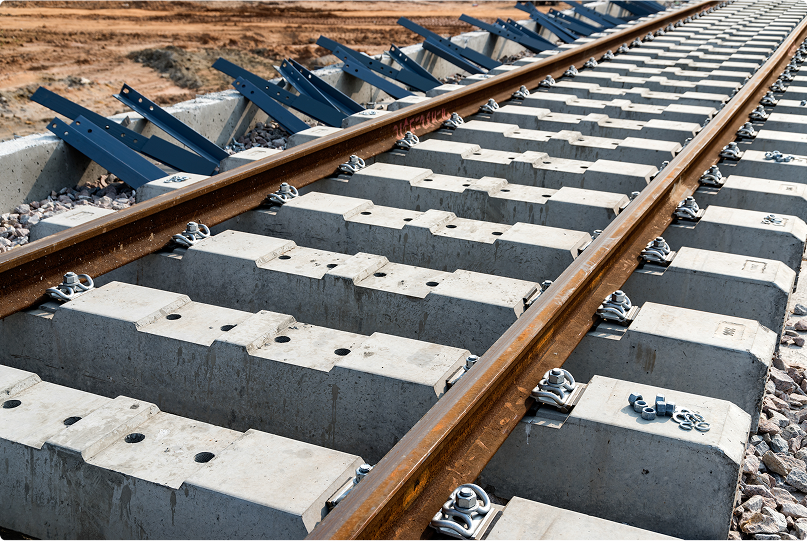
Sustainable materials use
Reducing waste and supporting a circular economy starts with responsible material choices. Rail Baltica prioritizes sustainable sourcing, recycling, and efficient waste management. Reusing topsoil and fertile soil helps limit our environmental footprint while addressing the long-term impacts of raw material use.
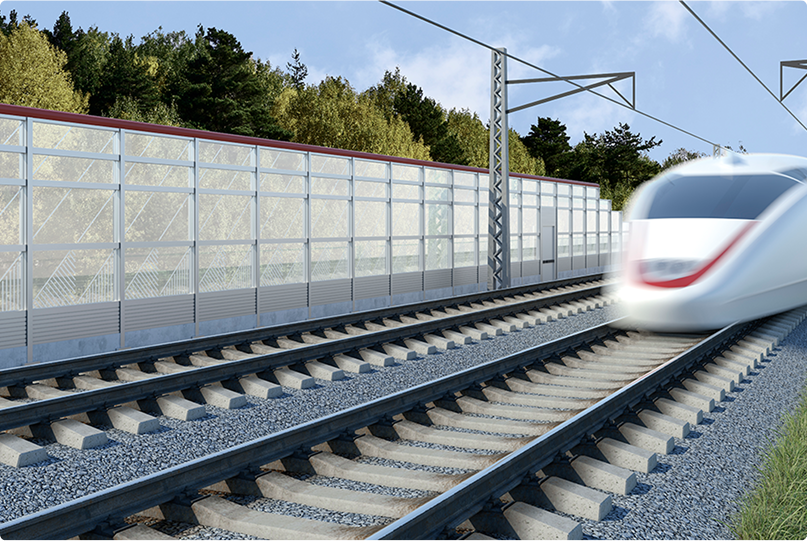
Noise and vibration reduction
Reducing noise and vibration for both communities and ecosystems is a key priority. Rail Baltica uses barriers, dampening technologies, and timing measures to minimize disturbance, especially during quiet periods. Ongoing monitoring will ensure levels stay within safe limits once operations begin.
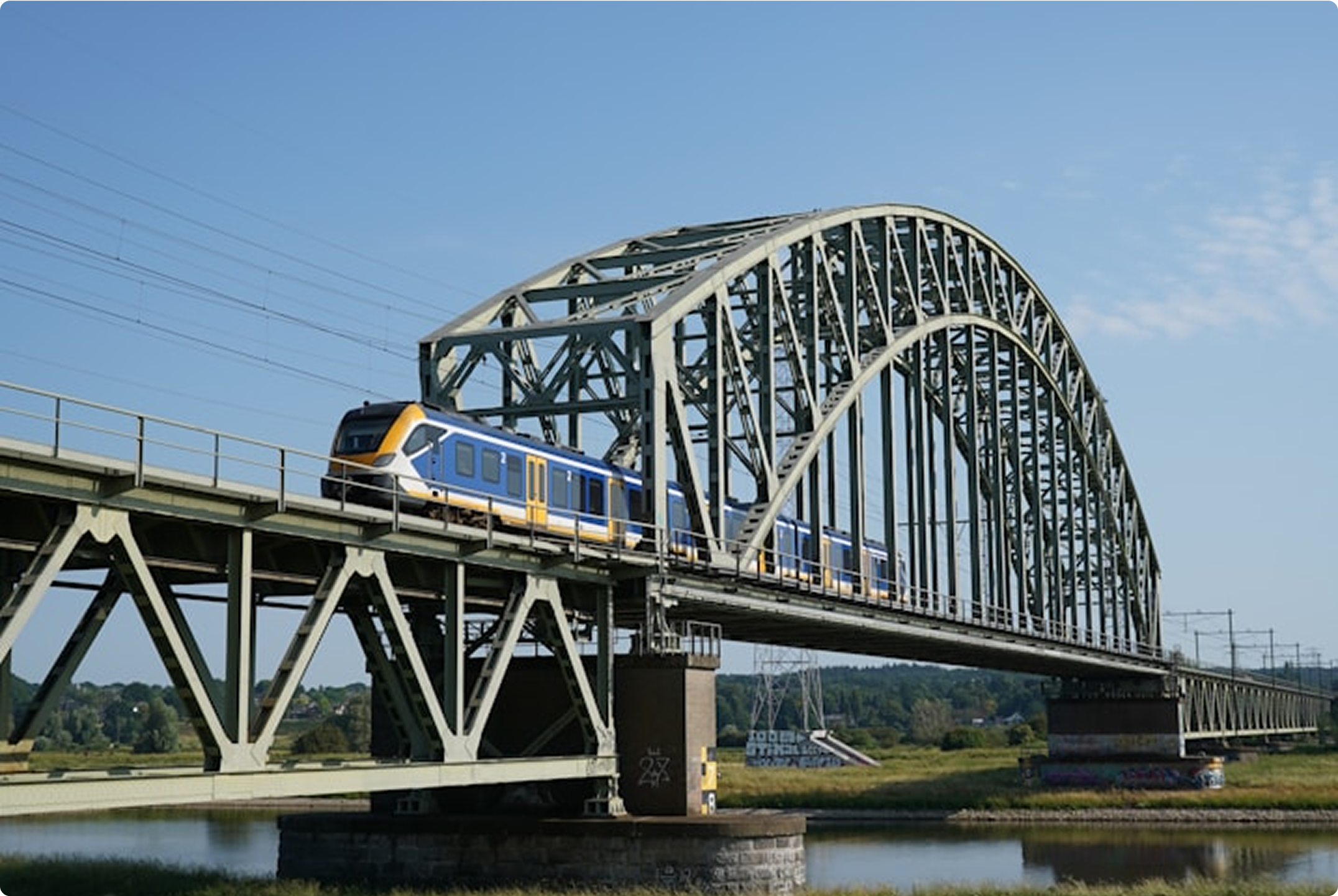
Water quality
Protecting water quality is a key focus, especially in sensitive areas during construction. Rail Baltica implements drainage and protection systems to preserve natural water flows and prevent pollution. Sensitive zones are avoided where possible, and runoff is carefully managed. Continuous monitoring and maintenance help safeguard water quality throughout the project’s lifecycle.
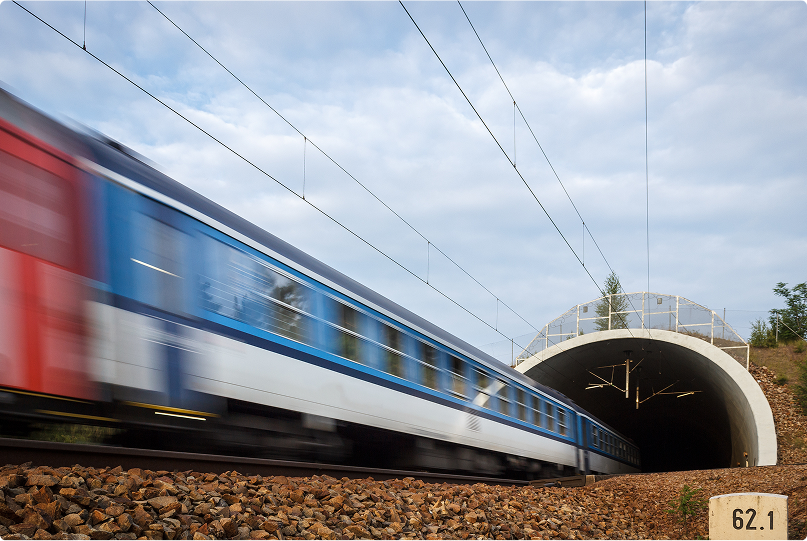
Climate resilience
Building climate resilience into Rail Baltica is essential to reduce risks, protect public safety, and maintain vital services. By anticipating extreme weather, we aim to limit future disruptions and economic losses. Resilience measures are integrated into both the design and long-term operation to ensure the infrastructure can withstand evolving climate challenges.
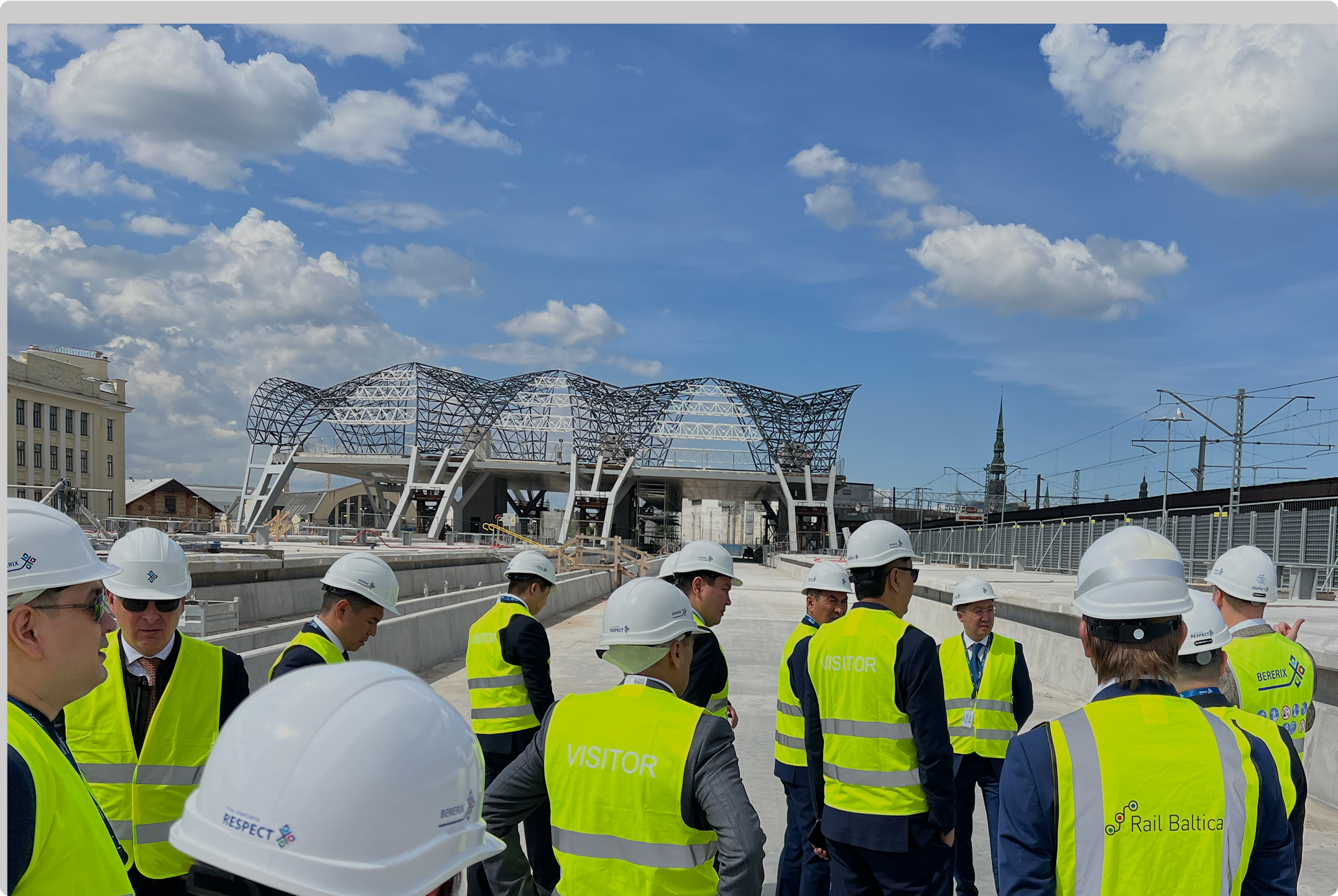
Community engagement and inclusion
Strong ties with local communities help ensure Rail Baltica delivers meaningful social and economic benefits – from job creation to support for local businesses. The project aims to improve access to services, reduce barriers posed by large infrastructure, and ensure rail is accessible to everyone, including people with reduced mobility.
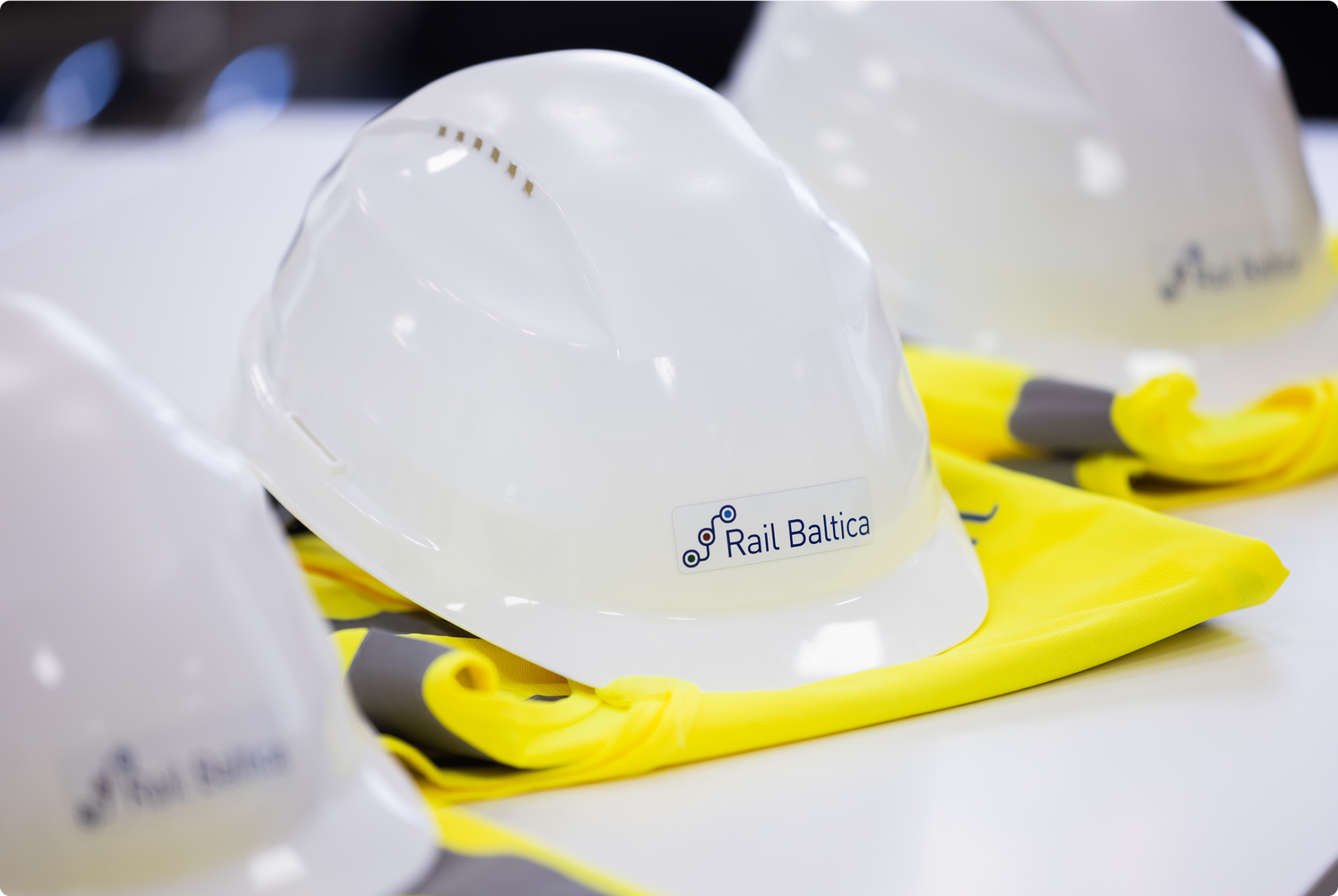
Community health and safety
Safeguarding public health and safety is central to Rail Baltica. We implement measures to reduce railway-related risks, limit environmental health impacts, and ensure safe access to services. These efforts protect both local communities and project workers throughout the development.
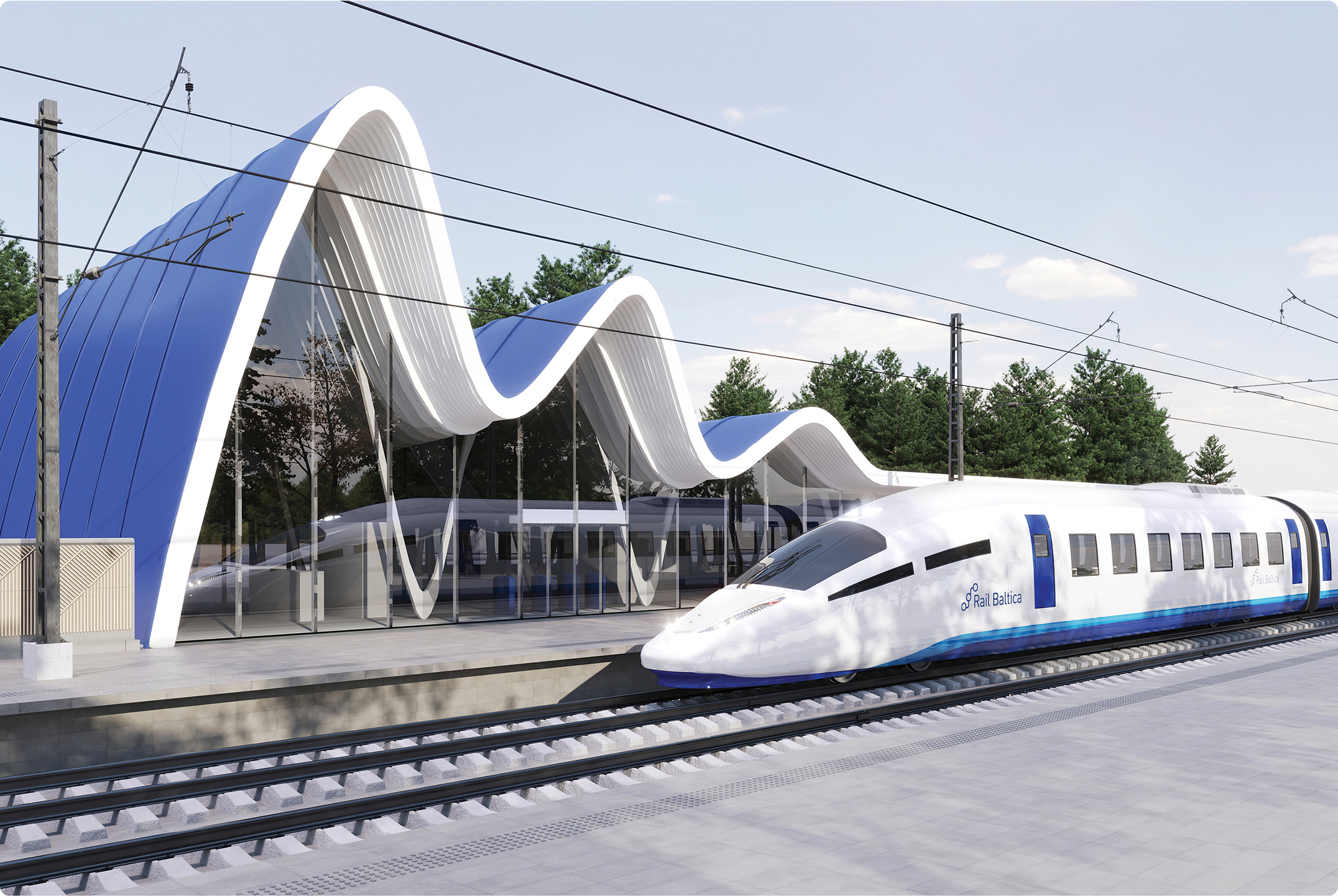
Technology and digitalisation
Innovation drives Rail Baltica’s efficiency and sustainability. By integrating renewable energy, smart infrastructure monitoring, and automated train systems, we boost performance while reducing environmental impact. Digital technologies also enhance safety and elevate the passenger experience.
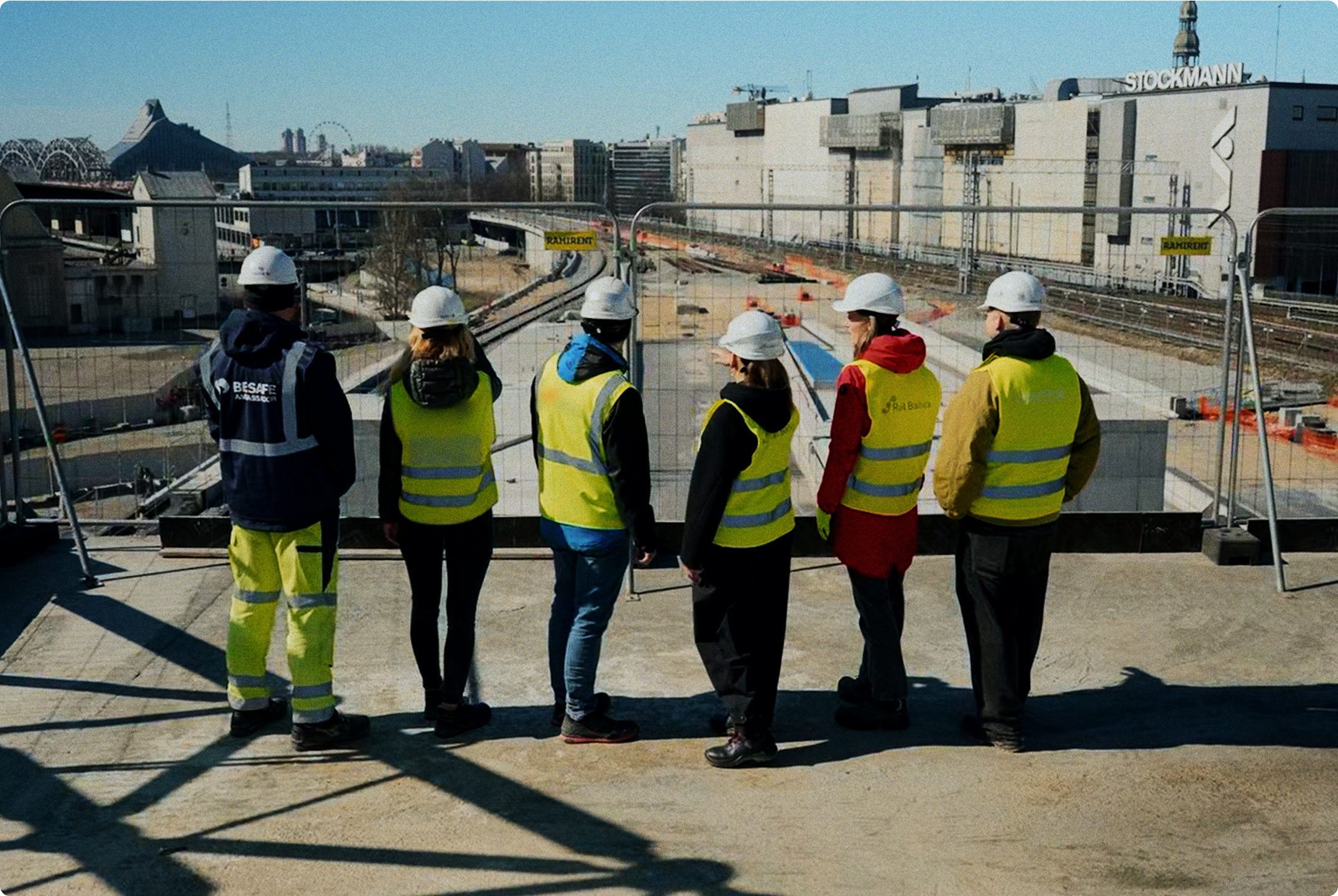
Local and regional economic development
Rail Baltica supports regional growth by improving access to jobs, education, healthcare, and culture. Transparent stakeholder engagement ensures diverse perspectives shape decisions, fostering inclusive and collaborative development.

Sustainable procurement
The project has transparent procurement standards and guidelines that reflect commitment to sustainability, ethical practices, and social responsibility. Social, environmental and sustainability aspects are incorporated into exclusion grounds, award criteria and contact performance conditions, and commitment is expected from suppliers through a code of conduct.
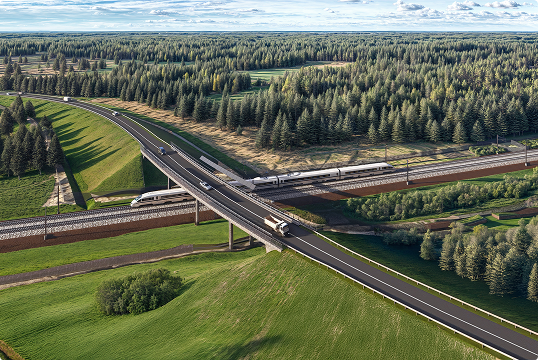
Corporate ESG integration
To achieve balanced development, environmental, social, and governance (ESG) factors should be integrated into decision-making and included in the agenda of top management. We strive to achieve that the project is lead with ESG considerations embedded into core operations, to drive positive change and responsible business practices.
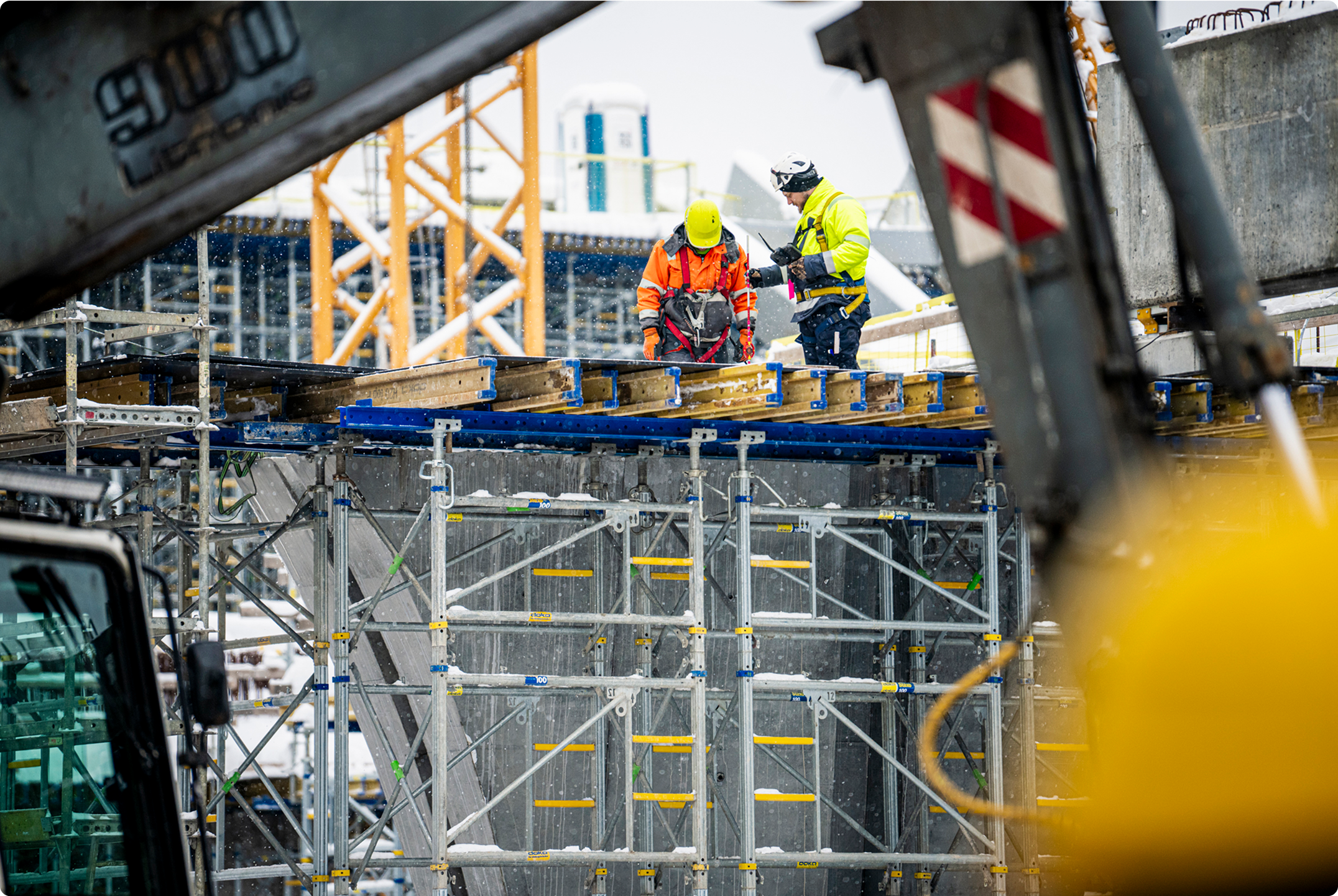
Coordination and collaboration
It is crucial to stay informed about evolving regulations, industry standards, and best practices when developing infrastructure like Rail Baltica. Collaboration among all Rail Baltica companies and with various stakeholders, including finance, business, trade, technology and education sectors, is essential for mutual improvement and progress.
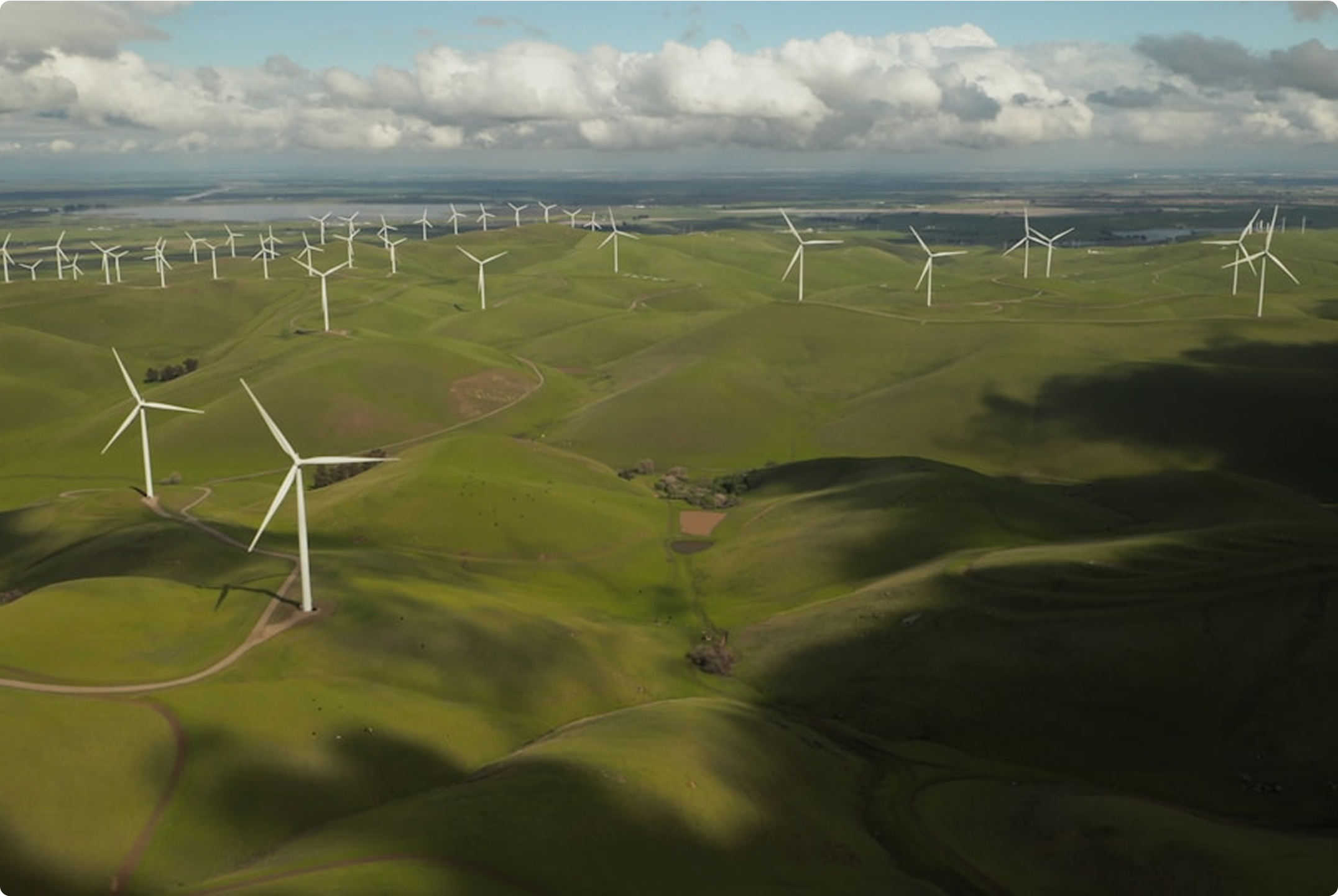
Sustainability awareness
Raising sustainability awareness among all stakeholders is necessary to ensure effective implementation of best practices. Our plan is to stay up to date and to promote sustainability for all workers and stakeholders to enhance awareness and continuous knowledge sharing.

Transparency and accountability
Transparency is key to Rail Baltica’s success. We are committed to regular reporting on progress and sustainability efforts, ensuring clear and effective communication with all stakeholders.

